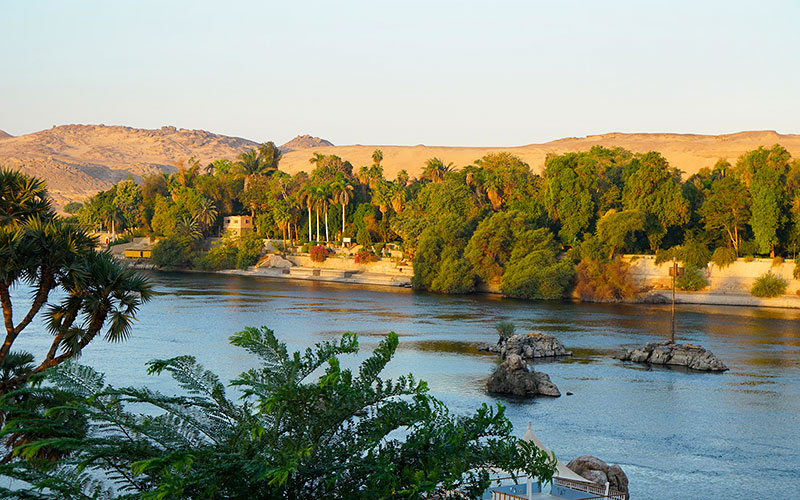The Nile River, is often referred to as the “Cradle of Civilization.” It is one of the world’s most iconic and historically significant waterways. Stretching over 4,135 miles through northeastern Africa. The Nile has played a pivotal role in shaping the rise of ancient civilizations and continues to be a source of fascination and wonder. In this blog post, we will delve into the compelling reasons why the Nile River holds the esteemed title of the “Cradle of Civilization.”

The Nile’s Geographic Significance
The Nile River flows through an incredibly diverse and fertile landscape. It’s creating a unique environment that has sustained life for millennia. It is the longest river in the world, flowing northward from its source deep in the heart of Africa, eventually emptying into the Mediterranean Sea. This geographical feature alone is significant. It provided a consistent source of freshwater and fertile soil to the civilizations along its banks.
Agricultural Abundance
One of the most remarkable aspects of the Nile is its annual inundation, which is a result of the river’s regular flooding. Each year, as the summer rains in the Ethiopian highlands swell the Nile. The river overflows its banks, depositing nutrient-rich silt onto the surrounding floodplains. This natural fertilization process, combined with the consistent water supply, created an agricultural paradise.
Ancient Egyptians developed intricate systems of irrigation and water management, allowing them to harness the Nile’s power and cultivate crops on a massive scale. The abundance of food produced along the Nile was essential for the growth and sustenance of ancient civilizations.
Birth of Egyptian Civilization
The Nile played an instrumental role in the birth and flourishing of the Egyptian civilization. Egypt’s historical timeline is often divided into three major periods: the Old Kingdom, Middle Kingdom, and New Kingdom. Each of these epochs saw remarkable achievements in art, architecture, literature, and governance.
During the Old Kingdom (c. 2686–2181 BCE), the construction of the pyramids at Giza and the development of a centralized government showcased the advanced nature of Egyptian society. These achievements were made possible by the agricultural surplus generated by the Nile’s fertile banks.
The Middle Kingdom (c. 2055–1650 BCE) marked a period of expansion and cultural growth. The Nile’s role as a natural highway facilitated trade and communication, allowing for the exchange of ideas and resources.
The New Kingdom (c. 1550–1070 BCE) saw the height of Egypt’s power and influence. Pharaohs such as Ramses II left their mark on history through grand temples and monuments. The Nile River was both a source of inspiration and a symbol of Egypt’s prosperity.
The Importance of the Nile in Nubia and Sudan
While Egypt often takes center stage in discussions about the Nile, it’s essential to recognize that the river’s influence extended beyond Egypt’s borders. Nubia, located to the south of Egypt, and present-day Sudan both benefited from the Nile’s life-giving waters.
Nubia, with its own rich history and culture, relied on the Nile for agriculture and trade. The Kingdom of Kush, situated in what is now Sudan, controlled key trade routes along the Nile, exporting valuable resources like gold, ivory, and exotic animals.
Cultural and Religious Significance
The Nile River held profound cultural and religious significance for the ancient Egyptians. They believed the river was a gift from the gods, particularly Hapi, the god of the Nile. Hapi’s Potbelly: Symbolizing the Nile’s Rich Silt in the Annual Flood
The Nile also played a central role in ancient Egyptian mythology, often associated with the afterlife. Crossing the Nile: Journey to the Afterlife Beliefs It’s making it an integral part of burial rituals and tomb construction.
Conclusion: A Legacy of Civilization
The Nile River’s status as the “Cradle of Civilization” is well-deserved. Its geographic significance, agricultural abundance, and cultural importance contributed to the rise of some of the most remarkable civilizations in history. From the grandeur of ancient Egypt to the rich heritage of Nubia and Sudan. The Nile continues to be a testament to human ingenuity and the enduring impact of this majestic river on the history of humanity.




